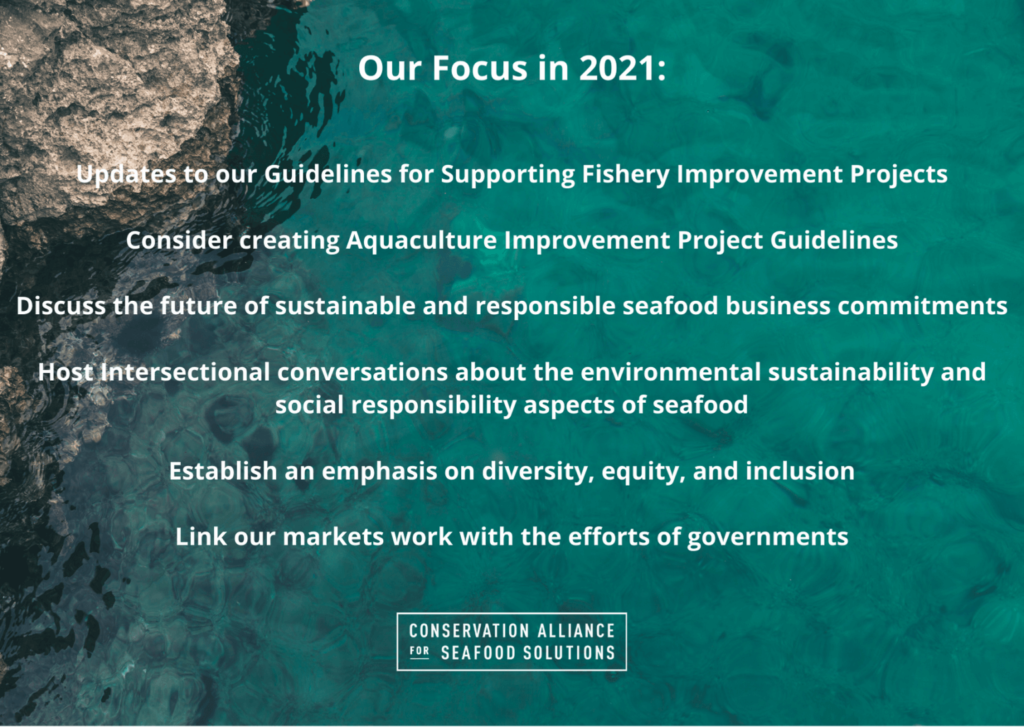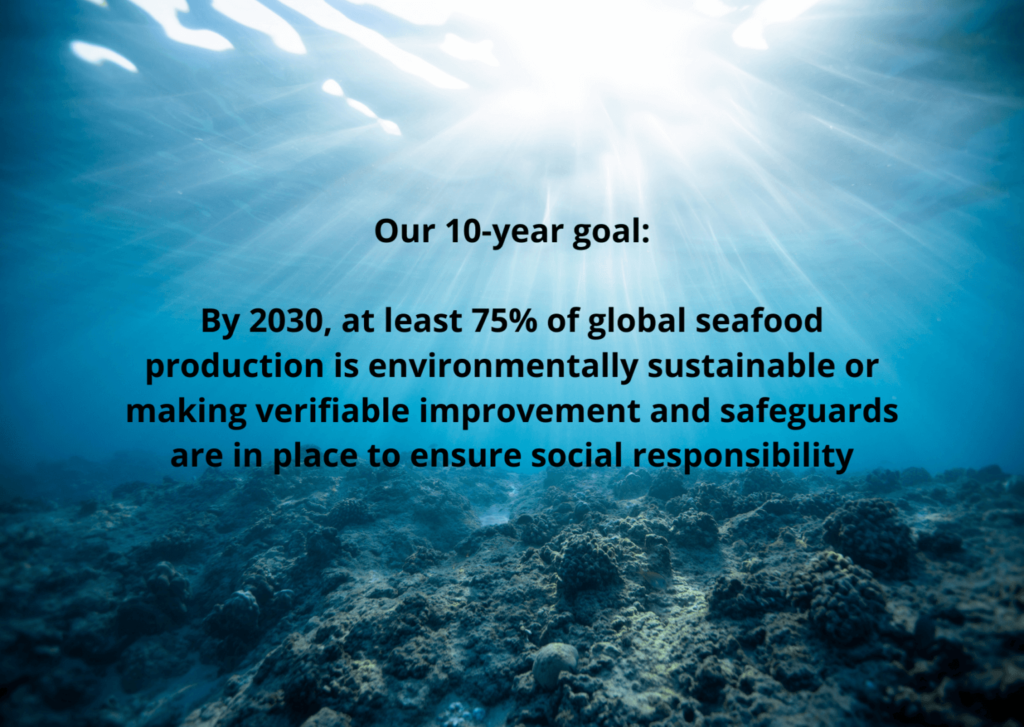The times remain unprecedented as we seek to understand and control a pandemic and social injustices, with little respite offered so far in this new year. Nevertheless, we persist in our work to make seafood supply chains more sustainable and socially responsible.
While our community continues to stay home and vaccine distribution begins in some parts of the world, the Alliance is launching a new governance and participation model for how we work together. In the past, the Alliance has been a group of environmental non-profits, largely headquartered in North America. We are making changes now to become a more global community. Any type of organization – whether NGO, consultant, government, academic, or for-profit company – are welcome to join our new Global Hub if their work aligns with our vision: “a world with an abundance of seafood in an environment where workers, communities, and our ocean can all thrive.”
The new Global Hub will be the home for our continued interdisciplinary conversations about sustainable seafood, including the intersectional conversation about social responsibility in seafood, and will be a place for community and togetherness during this time when we cannot travel and meet in person. When groups join the Global Hub they join our online community where we share resources, discuss current events, and hold webinars and other events focused on sustainable seafood strategy. In addition, Global Hub members are invited to: our community’s Annual Meeting, provide feedback on Alliance discussions and projects, and publicly support new projects and publications. If you’re interested in becoming a part of the Global Hub, click here to let us know.
As we create the Global Hub we will also launch several projects this year.

We will update our Guidelines for Supporting Fishery Improvement Projects – reflecting on the questions and findings from the CEA 2020 Global Landscape Review of Fishery Improvement Projects and the Packard and Walton Foundations’ Global Seafood Markets Strategy Evaluation. The Global Hub will be offered an opportunity to join the FIP Network and provide input on the new Guidelines. In addition, we’ll take up the questions of whether Aquaculture Improvement Project Guidelines are needed and how they would fit into our strategic efforts to increase the demand and supply for sustainable and responsible seafood.
Another topic that is top of mind is the future of business commitments to sustainable and responsible seafood. We’re thinking critically about the right role for NGOs and others to play and what supporting structures are needed, such as accountability mechanisms or greater alignment in commitments and goals. This thinking is informed by the Packard and Walton Foundations’ Global Seafood Markets Strategy Evaluation and its two recommended areas of focus:
- Strategic Focus Area 1: Improve the efficiency and effectiveness of market-based tactics deployed in North America, Europe, and Japan; and,
- Strategic Focus Area 2: Get more leverage out of market-based tactics by expanding the sphere of influence (page 97).
The new Alliance Global Hub aims to be the home for intersectional conversations about the environmental sustainability and social responsibility aspects of seafood. We’ll achieve this goal by inviting experts on human rights, labor rights, and social responsibility into our Global Hub. This group of experts will guide and inform the Alliance’s efforts to set best practice and minimum expectations for social responsibility, compile resources on the topic, and set goals for the Alliance and the movement’s work on social responsibility so we can track our progress over time.
Recognizing the critical importance of elevating those perspectives that have historically been excluded from the sustainable seafood and other conservation spaces, we are also focused on ensuring that an emphasis on diversity, equity, and inclusion underpins everything we do at the Alliance going forward. From creating new requirements for the Alliance Board composition and and staff hiring practices, to our efforts to make the sustainable seafood space more accessible by creating a student network and providing scholarship opportunities for our Annual Meeting, to threading social justice considerations into all project planning, this year the Alliance is continuing to take steps toward eliminating status quo ways of working that reinforce oppressive structures.
Lastly, we’ll consider how we can better link our markets work with the efforts of governments working to advance sustainable and responsible seafood. This will include digging into the data behind the Alliance 10-year goal and setting improvement goals for commercial seafood that is currently unsustainable or data deficient.

All of these efforts will be underpinned by our evidence-based decision making. This effort will ensure the Alliance community is systematically using robust evidence to assess progress against its Theory of Change and make decisions that increase overall effectiveness and impact. Alliance staff will frequently solicit feedback from the community on the Alliance’s goals, functions, and progress to ensure we are adaptively managing our work and taking on the big challenges that require input and support from the community, and that can’t be solved alone.
While 2021 will be another challenging year, we are looking forward to building our new community to ensure our work has greater impact and can achieve its goals more quickly. We look forward to having you join us in the Global Hub and work toward our goal of a world with an abundance of seafood in an environment where workers, communities, and our ocean can all thrive.
If you missed Part I of this blog series “The Power of Community in a Tough Year”, check it out here.
